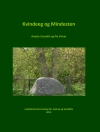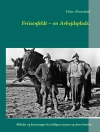In ‘Life in London or, the Pitfalls of a Great City, ‘ Edwin Hodder meticulously depicts the complex tapestry of urban life in Victorian London. Blending vivid realism with a keen social commentary, the book explores the multifaceted experiences of its characters as they navigate the bustling streets and social stratifications of a city rife with both opportunity and peril. Hodder’s narrative style, rich in detail and evocative imagery, encapsulates the stark contrasts of wealth and poverty, capturing the essence of London as both a magnetic force and a source of despair, while also engaging with the literary traditions of social critique prevalent during this period. Edwin Hodder, a prominent Victorian writer and journalist, was deeply influenced by the societal transformations occurring in London during his lifetime. His own experiences and observations of urban life, as well as his commitment to social reform, propelled him to illuminate the struggles of ordinary people amidst the city’s grandeur. Hodder’s passion for exposing the inequalities faced by the underprivileged is a hallmark of his work, making him an astute observer of the human condition during a time of significant change. This book is highly recommended for readers interested in Victorian literature, urban studies, or the social dynamics of historical cities. Hodder’s exploration of the dualities within London’s society encourages reflection on contemporary urban issues, making it a relevant and thought-provoking read for modern audiences.
عن المؤلف
Edwin Hodder (1837–1904) was a respected Victorian era author and historian, renowned for his works that offer a vivid portrayal of life in urban settings and engaging narratives of historical events, particularly those concerning religious and educational movements. Among his notable contributions to literature is ‘Life in London or, the Pitfalls of a Great City, ‘ an illuminating exploration of the complexities and challenges of metropolitan life during his time. In this work, Hodder artfully depicts the intricate social fabric and the ethical dilemmas faced by individuals amidst the rapid industrialization and growth of London. His literary style is characterized by keen observational detail and a conscientious approach to the moral implications of societal progress, reflecting his background and personal convictions. Hodder was not only a chronicler of urban realities but also contributed significantly to the historiography of religious and educational reform, bringing to his writing a rich tapestry of insights garnered from his extensive involvement in Sunday School work and as a biographer of notable figures such as philanthropist and educational reformer Thomas Hare. His collective body of work continues to provide an indispensable window into the socio-cultural dynamics of the Victorian era, holding particular relevance for historians, literary scholars, and those interested in the genealogies of social welfare and education in England.












